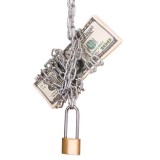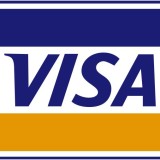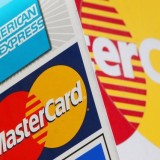This Page is No Longer Being Updated. Please Click Here to search for our current listings of the best prepaid debit cards.
Tag: Federal Deposit Insurance Corporation
-
CFPB Proposes Prepaid Card Rules
After a great deal of speculation, on November 13 the Consumer Financial Protection Bureau (CFPB) unveiled its proposed rules to govern the fast-growing prepaid debit card market. The proposed rules, which are open for public comment for 90 days, are an acknowledgment that more and more Americans utilize the cards to do their everyday banking.
The CFPB’s proposed rules are an effort to provide mainstream consumer protections to products that are no longer on the financial margins. “Consumers are increasingly relying on prepaid products to make products to make purchases and access funds, but they are not guaranteed the same protections or disclosures as traditional bank accounts,” CFPB director Richard Cordray said. “Our proposal would close the loopholes in this market and ensure prepaid consumers are protected whether they are swiping a card, scanning their smartphone, or sending a payment.”
As proposed, the CFPB rules would safeguard consumers under the Electronic Fund Transfer Act in ways that many credit card holders are already protected. Among the rules are:
• Access to account information: Prepaid card issuers must now either provide periodic statements of account activity or make information about account balances, transactions and fees available for free online. According to the CFPB, nearly half of all prepaid cards currently charge consumers to view their statements.
• Unauthorized charge protection: Today, when some prepaid cards are lost or stolen consumers have no protection for money lost due to fraudulent use of their account. This new rule would limit a consumer’s responsibility to $50 when a card is lost or stolen.
• Error resolution: Financial institutions must now work with prepaid card holders who find errors with their account. Specifically, the new rule obligates card issuers to investigate and resolve errors reported by customers in a timely manner. In cases when an issue can’t be resolved quickly, financial institutions must temporarily credit the disputed amount to a consumer until an investigation is complete.
• “Know Before You Owe”: One of the more nettlesome problems consumers shopping for a prepaid card encounter is an inability to compare and comprehend fees. This rules aims to change that by requiring standard disclosures, including fees for monthly account maintenance, ATM withdrawals, reloading an account and other important fees. In addition, the proposed rule also requires card issuers to make their account agreements online.
-
Survey: Americans Need To Get More Financially Fit
It can often seem like there are a bewildering number of things to do in order to stay financially fit. Don’t borrow too much money. Create a budget and stick to it. Save for retirement. Squirrel away money for your children’s education.
Now add this to the list of to do’s required in order to be financially fit: Be clear on what your credit status is. It may seem like something that can be easily relegated to the bottom of your pressing financial concerns, but that notion is misleading. Having good credit, after all, is a prerequisite for qualifying for a mortgage or a car loan or even a credit card. Furthermore, lenders look at your credit – usually your credit score – to determine how risky it is for them to hand money over to you. If you’re deemed a big risk, you either won’t qualify at all or you’ll have to pay a sky-high interest rate.
Sadly, a new survey conducted by the financial services company Capital One found that when it comes to credit, Americans are not nearly as financially fit as they need to be. Indeed, the survey discovered that a great deal of education needs to take place for many of us to improve our financial IQ, at least as it relates to credit. Among Capital One’s findings were:
- About one-third of Americans surveyed believe that a credit score only matters when they need to buy a house. This misconception is particularly pervasive among young Americans. Almost half of those under 35 who were polled believed this to be true.
- The survey also pointed towards widespread confusion about the factors that go into determining a credit score. For example, over a quarter of respondents mistakenly believe that having one late payment on a bill will not damage their credit. Another 24 percent of those polled wrongly believe that age is a factor in a credit score, while 19 percent asserted that where they live is considered.
- Although it’s free and a very smart thing to do only 30 percent of respondents had requested a copy of their credit report in that past year. Doing so allows consumers to check for and correct any errors that may be harming their credit. By contrast, 66 percent of respondents had their car’s oil changed and over half had been to the dentist.
- Despite all of this, the survey also found that 81 percent of parents believed that their kids would have better credit than they do by the time they reach their age.
-
Visa Attacks Prepaid Fee Confusion
It’s getting harder and harder for prepaid card issuers to be sneaky about their fees. Earlier this year the Pew Charitable Trusts issued a report detailing the lack of uniformity when it comes to prepaid fee disclosures and proposed a model disclosure box to make it easy for consumers to compare the fees associated with different products. Soon after that announcement, Chase declared that its Chase Liquid Prepaid Card would adopt Pew’s disclosure suggestions.
On June 3rd, Visa decided to weigh in on the prepaid fee disclosure issue. Working in conjunction with Pew and the Center for Financial Services Innovation, Visa announced that it has developed an easily understandable designation for consumers to look for in order to know quickly whether a prepaid card meets certain standards related to fees, disclosure and benefits. Prepaid card issuers that qualify can include a seal on their packaging and marketing materials that indicate their compliance with certain criteria. Think of it as a prepaid version of the “fair trade” sticker that graces coffee packaging.
“We felt it was important to go beyond current requirements in the marketplace and bring transparency to this growing product area,” says Ryan McInerney, president of Visa Inc. “This Visa designation will signify a new level of simplicity, protection and opportunity, enabling cardholders to confidently manage their spending every day.”
In order to qualify for the Visa designation, prepaid cards must meet a variety of standards such as offering a flat monthly fee that includes all day-to-day uses for the card. In other words, there are a lot of things that prepaid card issuers can’t charge for, such as point of service (POS) cash back, in-network ATM transactions, PIN or signature transaction fees and customer service or overdraft fees.
Additionally, qualifying cards must also offer specific consumer protections. Among other things, to receive a seal of approval cards have to include FDIC insurance, dispute resolution rights and Visa’s zero liability coverage.
According to Pew’s Susan Weinstock, who directs the group’s consumer banking initiatives, Visa’s move is important. “Visa is taking an important step forward by acknowledging the importance of clear disclosures and consumer protections,” she says. “It’s particularly encouraging that Visa is not allowing overdrafts on these cards, in light of our research on consumer prepaid card use.”
-
Which Plastic Is the Best? Debit Cards, Credit Cards or Prepaid Cards?
Long gone are the days when credit cards were the only choice for people in need of plastic. Here are some other options:
Imagine walking into a restaurant and being told that a menu is not needed because there’s only one dish being served. From time to time that happens — set price, or prix fixe, menus pop up at fancy restaurants and around holidays — but for the most part it would prompt many of us to head for the door. We all like choices.
Major financial institutions, like most restaurants, understand the need to offer different card offerings to meet the varied circumstances and tastes of their customers. As a result, many now offer three card options beyond traditional credit cards. Consumers can choose between secured credit cards, conventional debit cards and prepaid debit cards. Banks are tailoring their cards to meet the needs of different market segments, offering secured cards to young people and others eager to build good credit, issuing conventional debit cards to most checking account customers, and providing prepaid services to those who do not have bank accounts or who have other reasons for wanting prepaid cards. The choices assure almost all consumers can enjoy the safety and convenience of shopping or paying bills with bank or brand imprinted cards. Here’s a bit more about each option.
Secured Credit Cards
An inevitable part of life is to face financial stresses and setbacks. It just happens. And that has especially been the case over the past few years, as the economy has limped along and many have had to contend with lost jobs, lower wages and, often, a resulting damaged credit history. Secured credit cards are intended for people who have had some financial difficulties and thus have trouble qualifying for the sort of unsecured lines of credit typical with a standard credit card. In contrast with standard credit cards, credit building cards or secured credit cards require you to pay a deposit in exchange for borrowing privileges. Think of it this way: rather than the $5,000 or $10,000 limit many credit card companies grant their customers, secured credit cards generally set your limit at whatever amount you can deposit into your account upfront. So, if you open a secured credit card account with $1,500, then you have a credit line of $1,500.
Not all cards have such a strict formula for establishing credit lines, especially after you’ve proven that you reliably pay your bills. Qualifying standards are relatively lenient because that upfront deposit acts as collateral. In exchange, however, you face strict payment requirements and risk substantial penalties and interest hikes if you fail to use your card responsibly. The best secured cards require less than $40 in annual fees and charge less than 18 percent interest. The cards also typically assess late charges. The good news, however, is that prudent use of a secured credit card can help rebuild our your credit rating and help you qualify for an unsecured card (a “normal” credit card).
Conventional Debit Cards
“Free” checking is very seldom completely fee-free. When you open a conventional checking account, the majority of banks issue a debit card as part of their service. You may use a debit card to withdraw funds directly from your checking account on those occasions when you cannot write checks. You can also take advantage of online shopping and bill-paying services, which make spending and tracking your money far easier than writing out checks and combing through your register to balance your account. While conventional debit cards combine the convenience of a credit card with the security of a check, they can often come with fees. More and more banks are charging their customers monthly fees, such as overdraft charges, when they opt to use a debit card.
Prepaid Debit Cards
Prepaid debit cards offer the same convenience as credit and conventional debit cards without the risk of overspending. That’s because prepaid debit cards require consumers to deposit, or load, money into their account upfront. And the amount of money loaded onto the card is all that you can spend. Most prepaid debit cards require no application, and many charge limited or no monthly fees when you meet minimum monthly loading requirements. An increasing number of major financial institutions offer prepaid debit cards that carry all the same consumer protections as their conventional cards, and some are now including Federal Deposit Insurance Corporation (FDIC) protection as well. Consumers, however, must compare prepaid debit cards, because many providers still charge “maintenance” and “inactivity” fees. Mitchell Weiss, co-founder of the University of Hartford’s Center for Personal Financial Responsibility, tells U.S. News & World Report, “These cards prey on the under and unbanked consumers, who mistakenly believe they’re more economical than having a traditional checking account.” Fortunately, we make is simple to compare cards using our in-depth prepaid card analysis.
How to Choose a Card
Because they submit regular monthly reports to the three major credit bureaus, secured credit cards help you establish, restore or improve your credit. Tied to your checking account, conventional debit cards make routine transactions more convenient. Retailers and service providers typically accept debit cards even when they do not accept personal checks, and conventional debit cards make online shopping easy. With most conventional debit cards, however, you run the risk of overdraft penalties. For many families, prepaid debit cards can be a good choice, because they offer the convenience of credit and conventional debit cards while they make sure you stay on your budget. If you want to shift your family to a “cash only” economy, prepaid debit cards can be a good step in that direction.
No single card is the best choice for everyone. Your best choice depends on your financial situation and objectives. Many credible online sources provide tools for comparing cards and calculating which best satisfies your needs. And picking a card doesn’t have to be an either-or proposition; many families choose to carry and use one of each.
Originally posted on Huffington Post
-
AmEx Sees Surge In Prepaid Customers
Participants at last week’s Sanford Bernstein’s investor conference in New York City could be excused if they thought they had stumbled into a political rally. Giving the final formal presentation at the “Disruptive Trends in Financial Services” gathering, American Express Group President for Enterprise Growth, Dan Schulman, made an impassioned critique of the way the current financial system functions, or doesn’t, for the 50 percent of Americans who live paycheck to paycheck.
“There’s an epidemic of people being forced to the margins of our financial system,” Schulman said, citing statistics from the Federal Deposit Insurance Corporation (FDIC) that 70 million Americans are either unbanked or under banked, meaning they either lack a basic checking account or credit card. Tens of millions more, he said, are “unhappily” banked, forced to pay ever increasing fees for checking accounts that banks offered for free, in the past.
According to Schulman, this situation has forced far too many people to pay high fees and wait in long lines just to make basic financial transactions, like paying bills or cashing a check. Schulman gave the example of payday loans that aren’t immediately repaid incurring interest rates upwards of 500 percent. The belief that there is a fundamentally more equitable way to deliver financial services than what is currently offered by brick and mortar bank branches has led American Express to launch its low-cost Serve prepaid card and Bluebird checking account alternative. Schulman went so far as to say that it was a “defining mission” of American Express “to explode the paradigm that it’s expensive to be poor.”
If that is the mission at American Express, Schulman offered some pretty strong evidence that the company is making progress towards it. He told the conference that American Express has added almost 2.5 million new Bluebird and Serve customers since the beginning of the year. That brings the total number of customers to about 9.5 million. Additionally, Schulman reported that Serve and Bluebird customers have loaded about $1.9 billion into their accounts in the first four months of the year.






